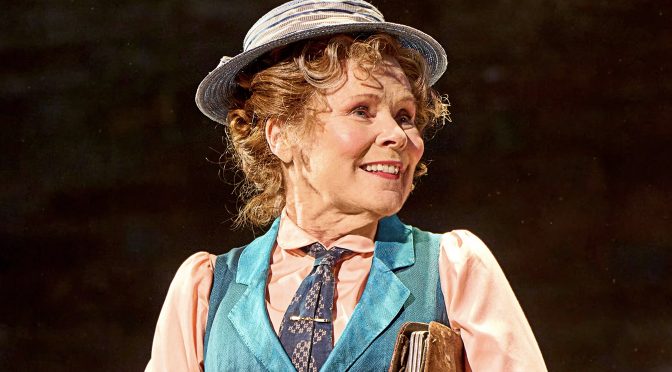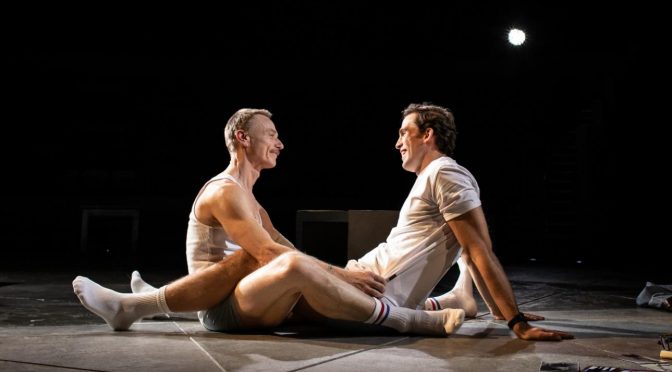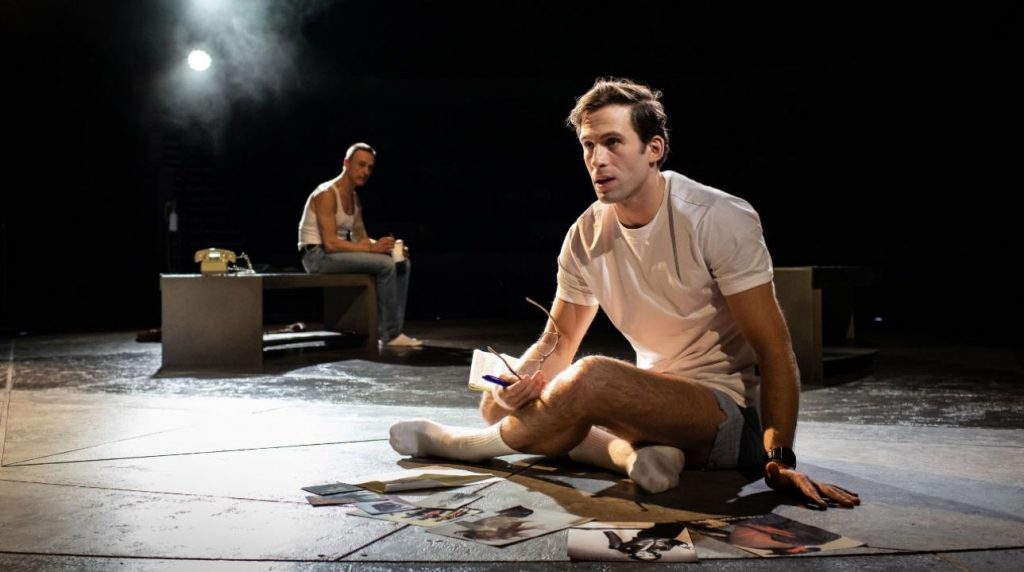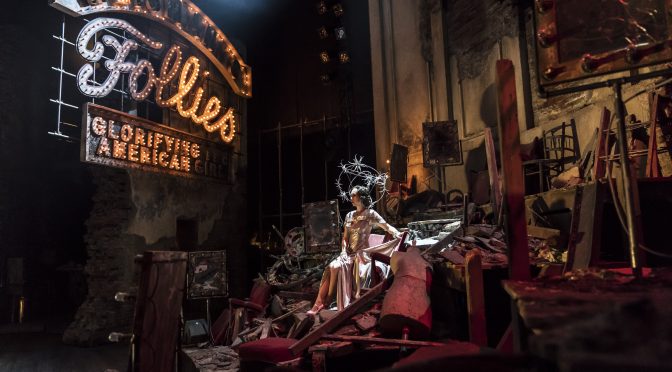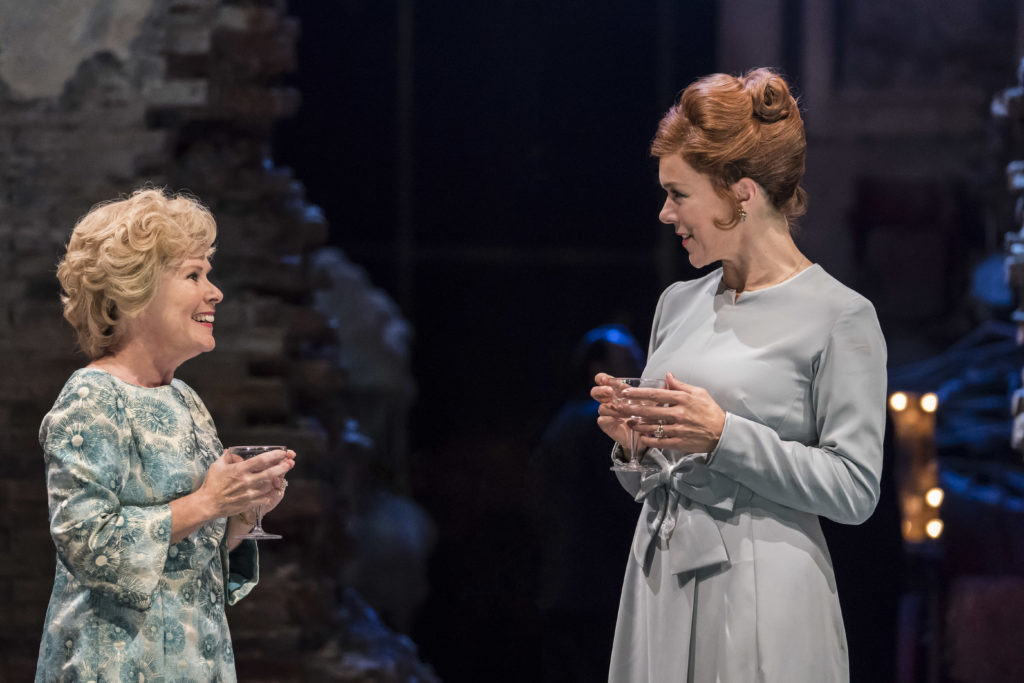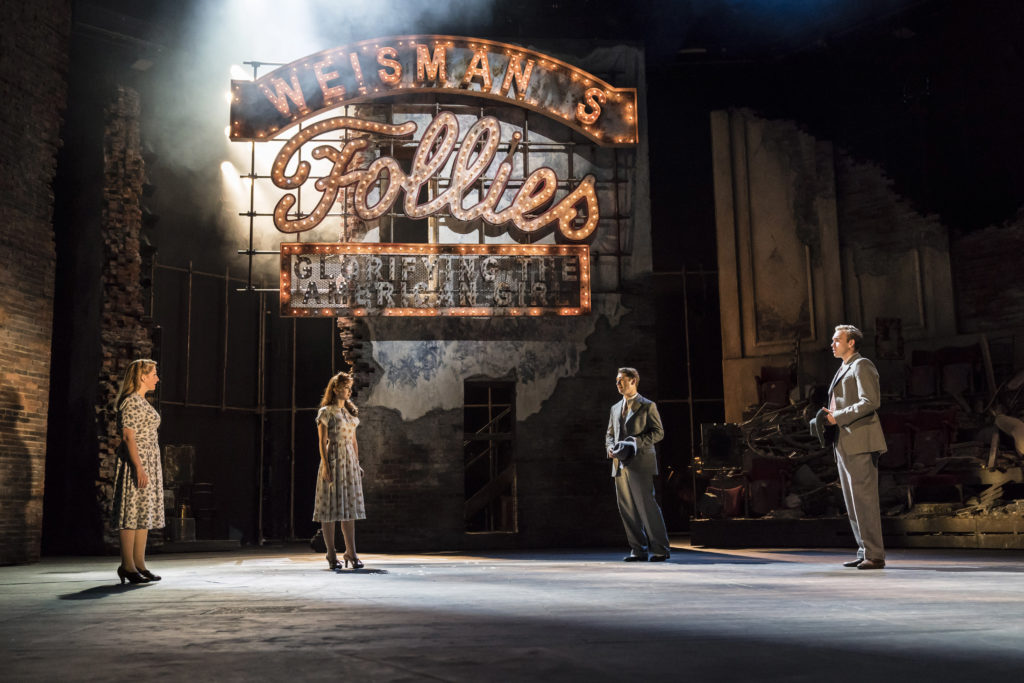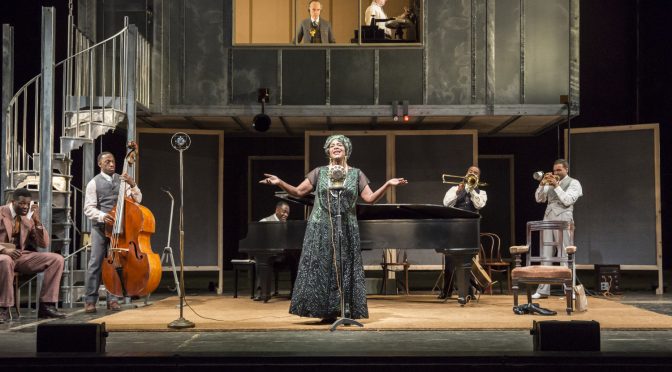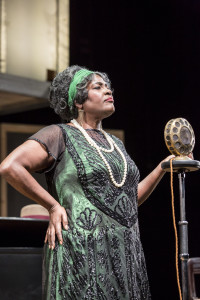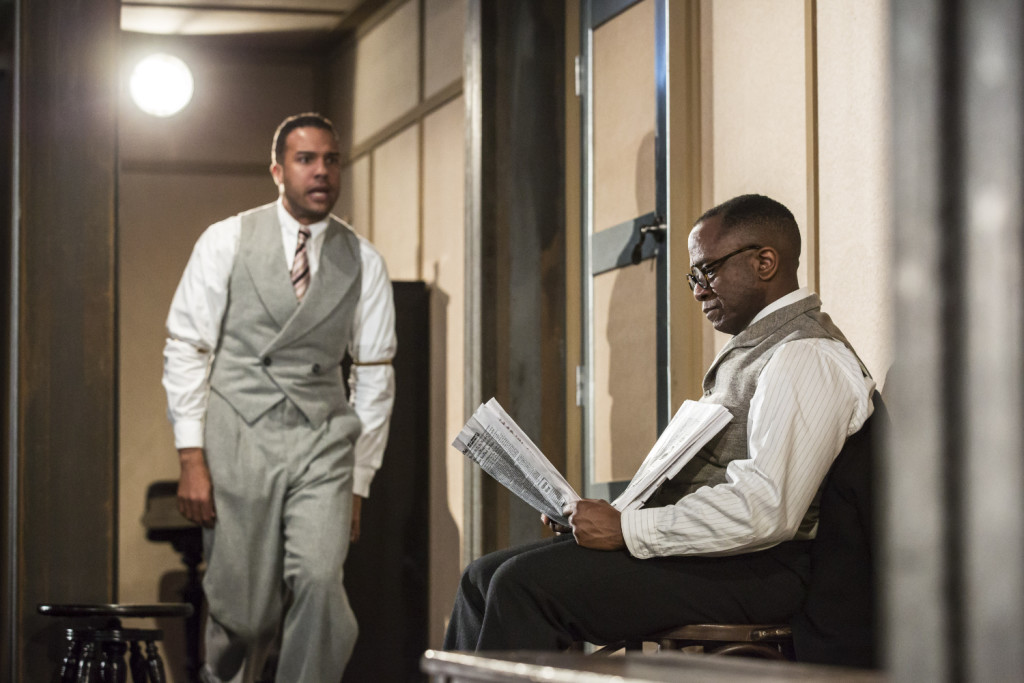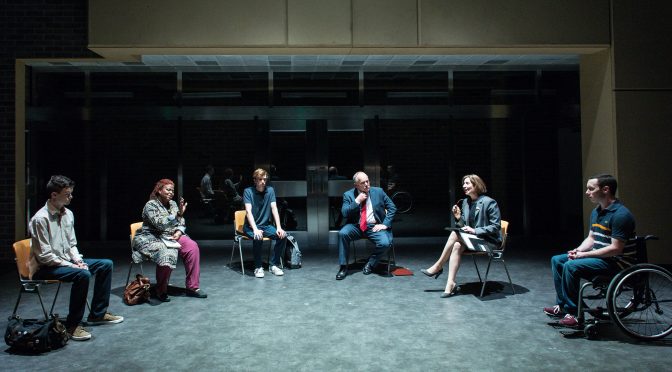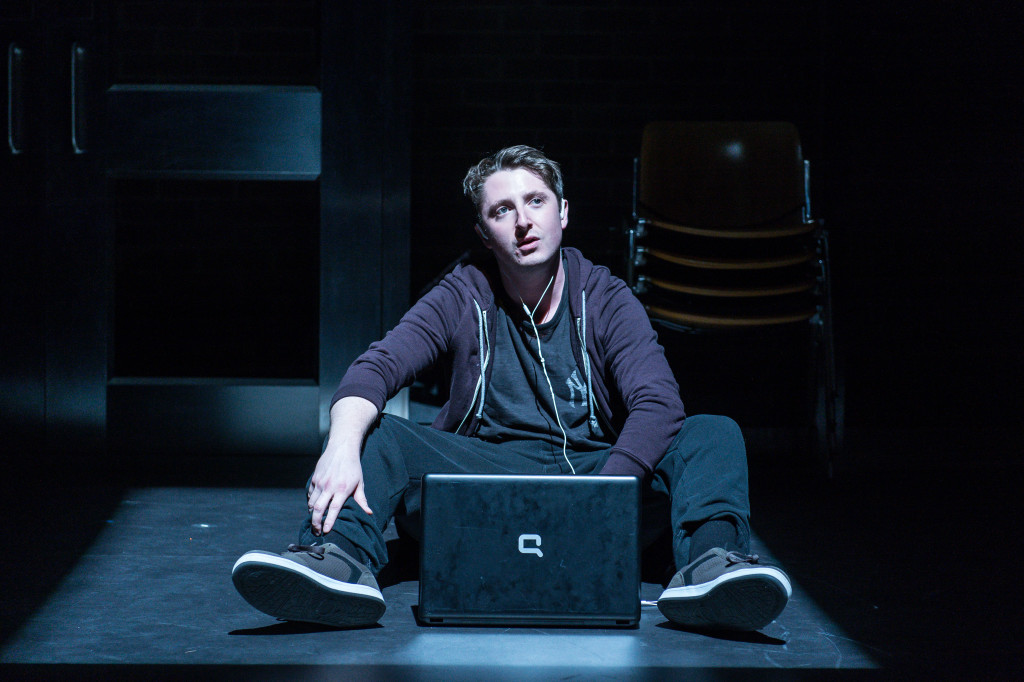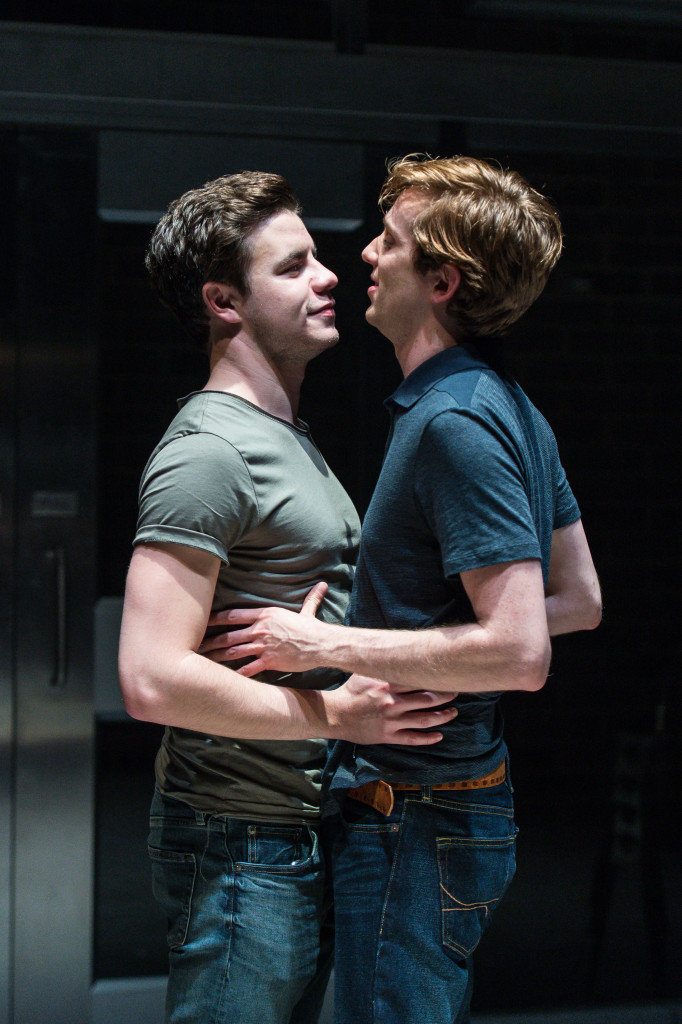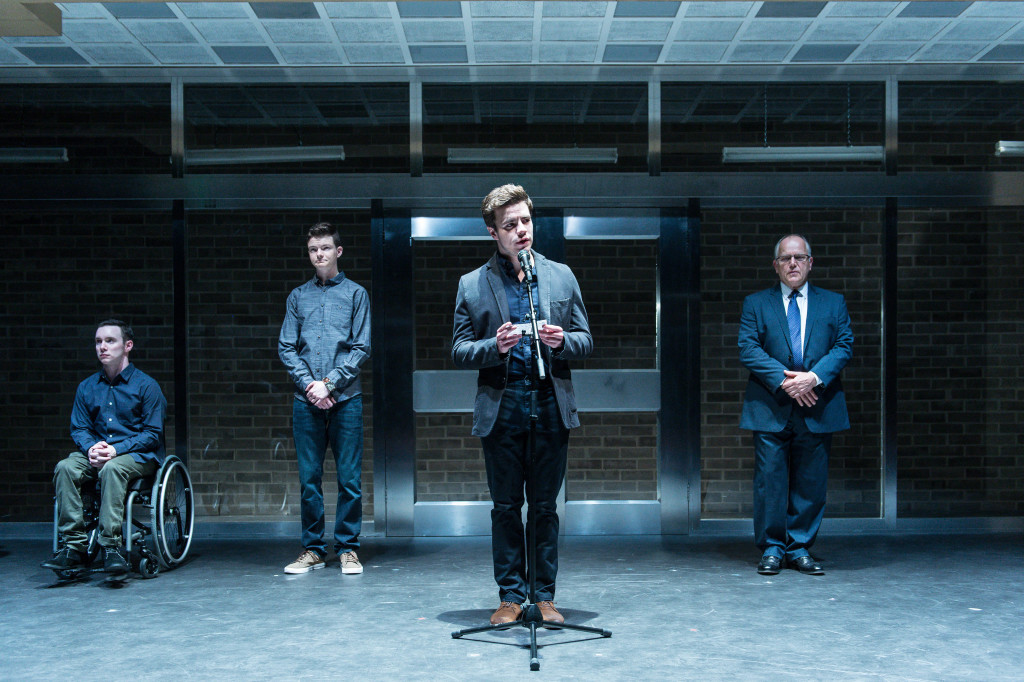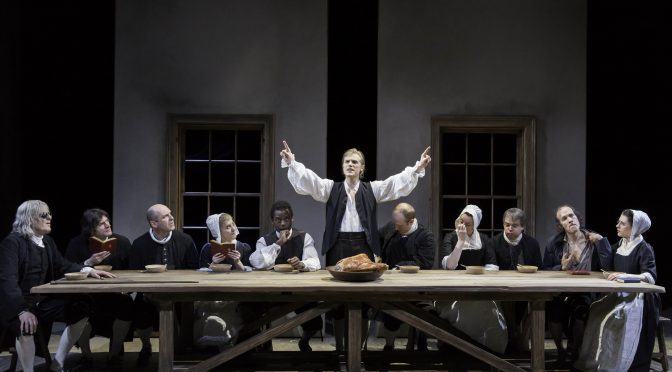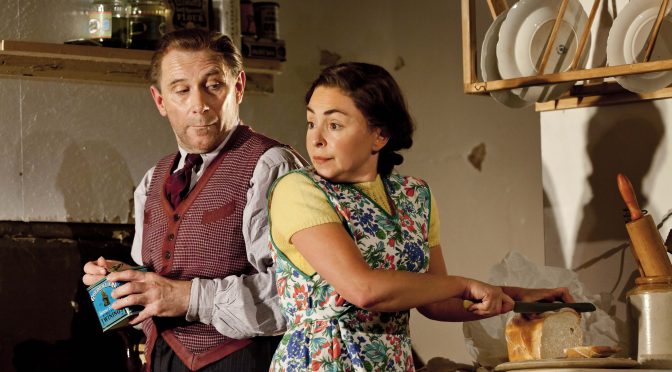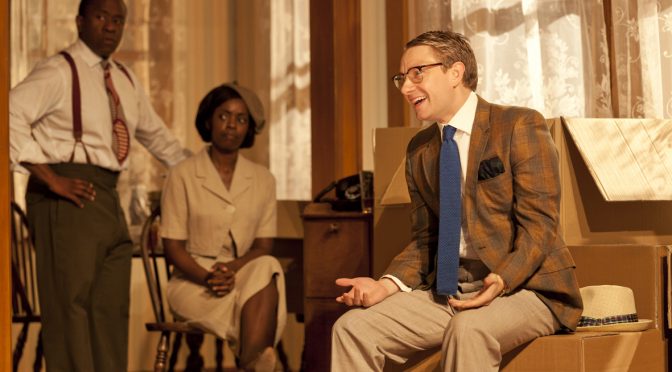Jerry Herman’s 1964 musical is one of the greatest ever written. The story of matchmaker Dolly Levi, finding a new life, and love, with “half-a-millionaire” Horace Vandergelder, is full of wonderful songs. But it takes a great production – and a true star – to make the most of it all. This revival brings out all the show’s fun, romance, and – a little surprise – its wisdom.
Director Dominic Cooke is known for his work with plays more than musicals. Maybe his lauded revival of Follies whetted his appetite for more – let’s hope so. Cooke makes the most of Michael Stewart’s superb book for Hello, Dolly! The dialogue, like the lyrics, is funny. But the characters aren’t just comedic, they are well developed. Dolly dominates a coherent and vivid world (credit also to designer Rae Smith), all brought together by a story that is more emotional than you might expect.
Dolly delves into many lives, changing them for the better of course. With an excellent cast, we care for those frustrated in love. Take Cornelius and Irene, wonderfully performed by Harry Hepple and Jenna Russell, who only take a moment to fall in love but manage to be convincing. Or Barnaby and Minnie, parallels in so many ways, brought to life by Tyrone Huntley and Emily Lane with great charm. And of course there’s Horace, a role taken by Andy Nyman, whose presence as well as his voice impresses.
But who are we kidding? The show is about its titular star and Imelda Staunton doesn’t just fit the role perfectly – she adds to it. She is an excellent comedian – the reaction at finding herself amongst funeral directors during the parade scene is brilliant. But Staunton takes the show seriously, there are moment of melancholy that are striking. While notes can be powerful – her voice is strong – they don’t have to be belted out. Dolly may be brash, but her emotions are refined. And her view of life is worth listening too. It’s important that Staunton is a star. The audience response is rapturous, Hello, Dolly! has a great atmosphere. But note the amount of control; applause stops the moment Staunton is going to sing again. Even if we only get a moment, not an instant is to be missed – onstage and off, everyone is in love!
Until 14 September 2024
Photo by Manuel Harlan

